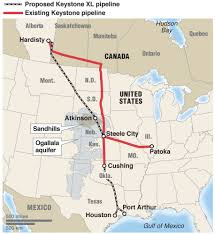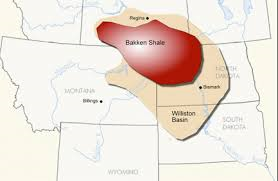Build the D@!n Keystone XL Pipe Line

Robert Menard
Certified Purchasing Professional,
Certified Professional Purchasing Consultant, Certified Green Purchasing Professional, Certified Professional Purchasing Manager
In a November 2013 post, we spoke of the hypocrisy of ethanol. Taxpayers are subsidizing a Quixotic chase whose only economic benefit accrues to huge Agra-businesses. This corporate welfare shame bears no resemblance to free market principles. Further, it does violence to the environment and artificially invades the food chain, creating shortages and driving up prices to feed people and live stock.
In a related example of mismanaged energy policy, the Keystone XL Pipe Line continues to be blocked by tiny but formidable far left interests who hold sway with the Obama administration. This myopic and cynical minority are causing damage to vital interests to the U.S. such as energy independence and high paying construction jobs. In a remarkable irony, big labor on the left is in favor of building it but some big businesses on the right are not. For instance, Burlington Northern Santa Fe Railway, (BNSF) principally owned and controlled by crony capitalist billionaire Warren Buffet and the Canadian Pacific Railway, LTD (CP) are in no hurry to see the pipeline built; it is in their understandable economic interests for Oil & Gas production to rely upon rail The same is true for Trinity Industries, a large rail car builder whose stock has risen 250% in the past year from about $20 to $50 per share as the demand for rail cars soars. Trinity cannot keep up with the demand and will not until the pipeline is built, if ever, some years in the future.
In yet another illustration of hypocrisy, General Electric headed by another crony capitalism pal of the Obama administration, Jeff Immelt, has announced that it will dramatically expand locomotive production at its new Fort Worth, TX plant to supply BNSF. The business forces, aligned with loony so-called “environmentalists” constitute a formidable economic lobby against the Keystone KL Pipeline.
Parallels between ethanol and the Keystone XL Pipeline
 Energy exploration in northwestern North Dakota is literally blowing out of the ground. Rich resources in the Bakken Shale formation are driving petroleum production up, unemployment down to the lowest rate in the nation, and have lit the state’s economy on fire. So far, so good.
Energy exploration in northwestern North Dakota is literally blowing out of the ground. Rich resources in the Bakken Shale formation are driving petroleum production up, unemployment down to the lowest rate in the nation, and have lit the state’s economy on fire. So far, so good.
However, the many years of delay in approving the Keystone XL Pipe Line have exacted their economic and environmental costs. Most of the negative consequences are predictable; indeed, catastrophes such as derailed oil tank cars are directly attributable to the lack of the pipeline.
Pipelines have always been the most economical, efficient, safest, and fastest way to transport fuel from source to treatment to distribution. A far secondary alternative is rail. It is slower, more expensive, and riskier. But those daunting problems are just for starters.
As more rail cars and resources are devoted to energy, less is available for agriculture. For decades, agriculture has been ND’s largest industry, accounting for more than a quarter of the state’s economy.
The unavailability of rail resources forces companies like BNSF and CP to prioritize cargo according to fees and fares. As of 22 August 2014, BNSF, the largest RR company in ND, has a backlog  of 1,336 rail cars waiting to ship grain and other agricultural products. CP had a backlog of another 1,000 cars for agricultural purposes. For perspective, a unit train, meaning just one commodity like autos or grain, as opposed to a manifest train carrying many commodities, may be 100 to 125 cars long and between 7,500 and 10,000 feet, depending on type.
of 1,336 rail cars waiting to ship grain and other agricultural products. CP had a backlog of another 1,000 cars for agricultural purposes. For perspective, a unit train, meaning just one commodity like autos or grain, as opposed to a manifest train carrying many commodities, may be 100 to 125 cars long and between 7,500 and 10,000 feet, depending on type.
In August, the US Department of Agriculture has expressed concern that CP will be unable to fulfill nearly 30,000 requests from farmers and others for rail cars before October. Through elected representatives, constituents in the agriculturally bountiful states of ND, South Dakota (SD), Minnesota (MN) are pressuring the Surface Transportation Board the regulatory body affecting railroads, to favor agriculture, with perishable products, over petroleum, with stockpile-able products. However, stockpile infrastructure is scarce in ND.
Both railroads insist that oil shipments have not displaced crop shipments. They blame the cold winter and an increase in shipments of all types due to the improving economy, at least in ND.
Misguided energy policy impacts the food industry again
Just as ethanol decreases the feed stocks available to humans and animals and thereby drives up costs, food giants like General Mills and Cargill are losing production. In reporting an earning drop in August, Cargill cited “higher costs related to rail car shortages”.
A study by ND State University found that rail congestion could cost farmers $160 million as the oversupply of gran drives prices down. An aggravating factor is the projected record harvest of 272 million bushels of wheat, up from 235 million last year. Corn and soybean are also expected to produce record harvest.
So what is the take away?
The Keystone XL pipe line could create sorely needed high paying jobs, enhance energy independence, and provide the safest method of transporting petroleum products. Rail resources are inadequate to handle both petroleum and agriculture. The result could impose avoidable disasters on US farmers and consumers. The only counter-arguments are from politically based ideologues who are unable to confront the realities of science and economics.
Build the D@!n Keystone XL Pipe Line!